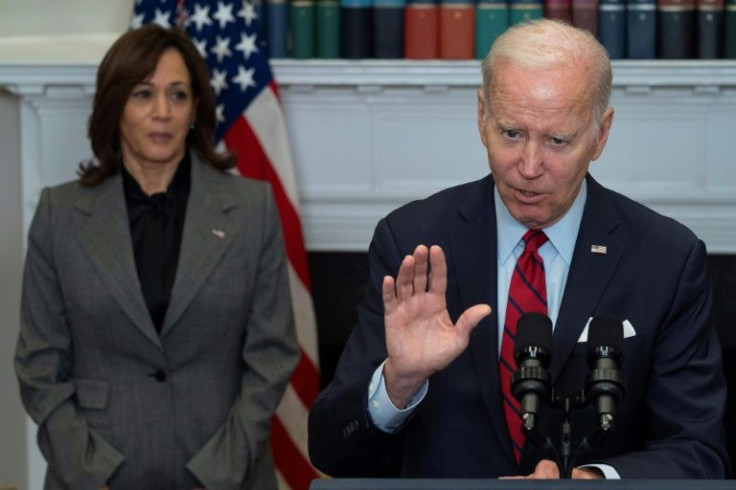
Immigration has been a key topic of criticism for the Harris campaign by Republicans, who have strengthened their attacks, dubbing her as "border czar" for her involvement in dealing with the issue during the beginning of the Biden administration. But while the nickname may not necessarily be accurate, experts say her strategies may have been too ambitious and lacked long term solutions, Noticias Telemundo reports.
Several immigration experts say the Vice President's task lacked diplomatic consistency and lost visibility in the Northern Triangle— El Salvador, Honduras and Guatemala— after a couple visits that generated high expectations.
"I think the expectations were very high," said Rosario Martinez, coordinator in Guatemala of the Migration and Development program of the Latin American Faculty of Social Sciences (FLACSO). "I understand that when President Biden gives this strategy to Vice President Kamala Harris to develop, she then seeks to go directly to the communities and areas of high migration. But there is no state presence around those areas."
A short time after assuming office, President Biden tasked Harris with addressing the "root causes" of immigration in the Northern Triangle countries.
Harris accepted the role, announcing that the U.S. would allocate $4 billion in the region to support entrepreneurs, small businesses, and agricultural producers in rural areas, as well as expand access to technology and combat gender violence, among other initiatives.
In March, the Biden administration assured that the U.S. is on track to fulfill its financial aid commitment through various programs in four years and reported that since 2021 it has allocated more of $325 million in 19 projects in Guatemala, El Salvador and Honduras.
But despite their best efforts, unauthorized migrant crossings through the southern border increased to unprecedented levels in the following years, making it one of the central issues to the Biden-now-Harris campaign.
Martinez said issues such as the lack of traceability in the production chain, roads in poor condition that prevent the movement of products, difficulties in having decent housing and accessing health services, as well as precarious conditions of the educational system leave communities marginalized. Then, these countries are incapable of addressing the issues, making it even more difficult for the U.S. to fix them.
"The measures that the United States government has taken do not have the capacity to change these conditions, because the structure should be a gear that works, but it does not work because one of those gears has deteriorated," Martinez says.
Daphne Posadas, a Guatemalan analyst and economist who attended Harris' visit to the country in 2021 agrees. She says that while the initiatives are well-intentioned, they are also missing a significant piece of the puzzle.
"The discussion with Vice President Harris revolved mainly around how we solve poverty and how we help people start businesses, without discussing the other part of the equation, which is how we give people incentives to start businesses in Guatemala," Posadas told Noticias Telemundo.
"The justice system needs to be strengthened, the Public Ministry needs to be strengthened, one of the main institutions that are currently eroding the rule of law. And that is what was left out of the discussion," she continued.
However, over-ambition may also have gotten in the way of the administration's plan, Posadas says, as political and social issues can hardly be resolved in three years, nor should they be blamed on a singular person like the Vice President.
"When we talk about institutional quality, these changes do not occur in the short term. They take a long time," said Posadas. "I think Kamala Harris came in a context where the task was indeed titanic. She was practically between a rock and a hard place."
© 2025 Latin Times. All rights reserved. Do not reproduce without permission.




